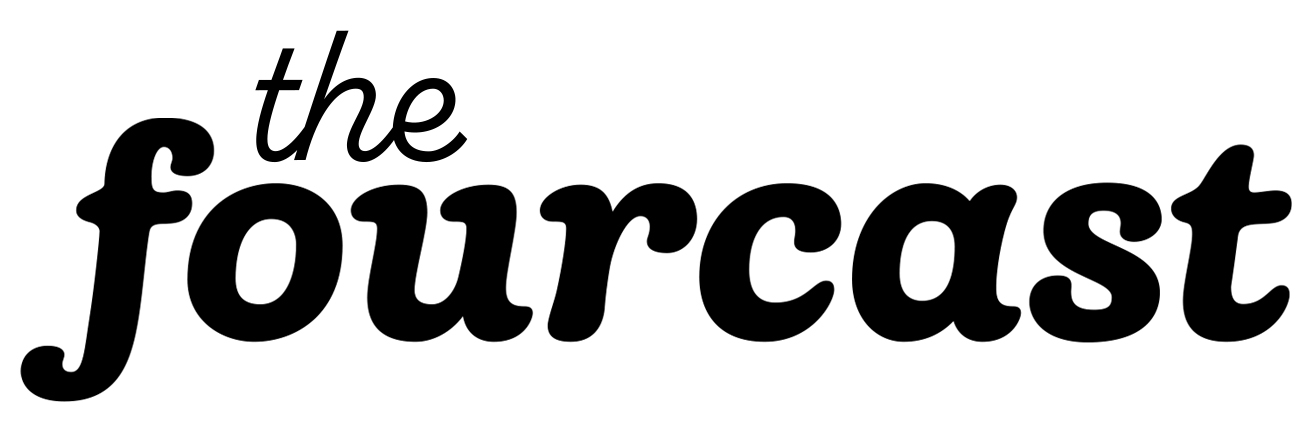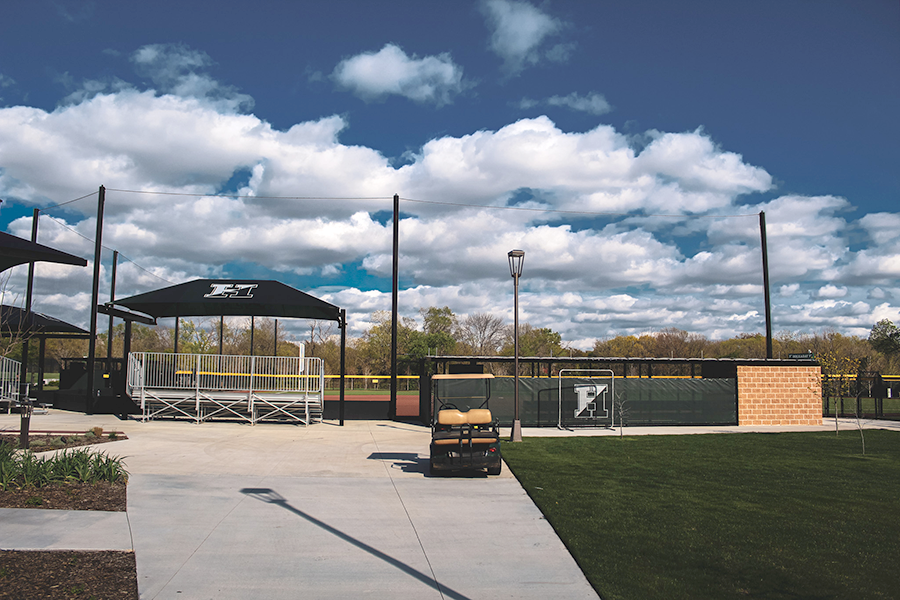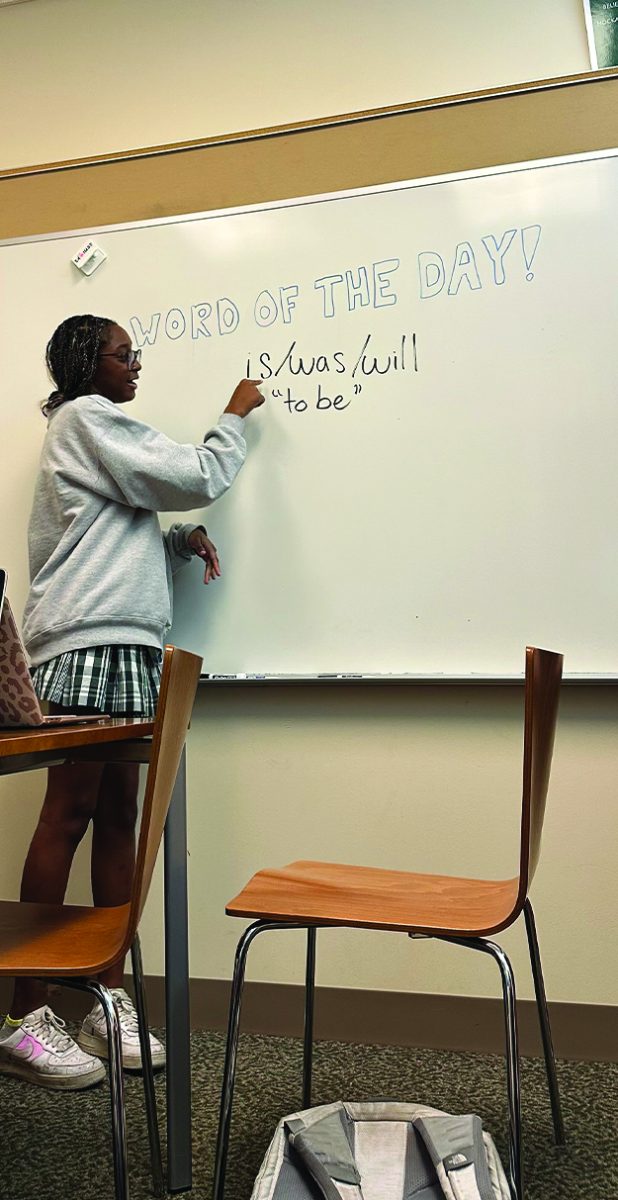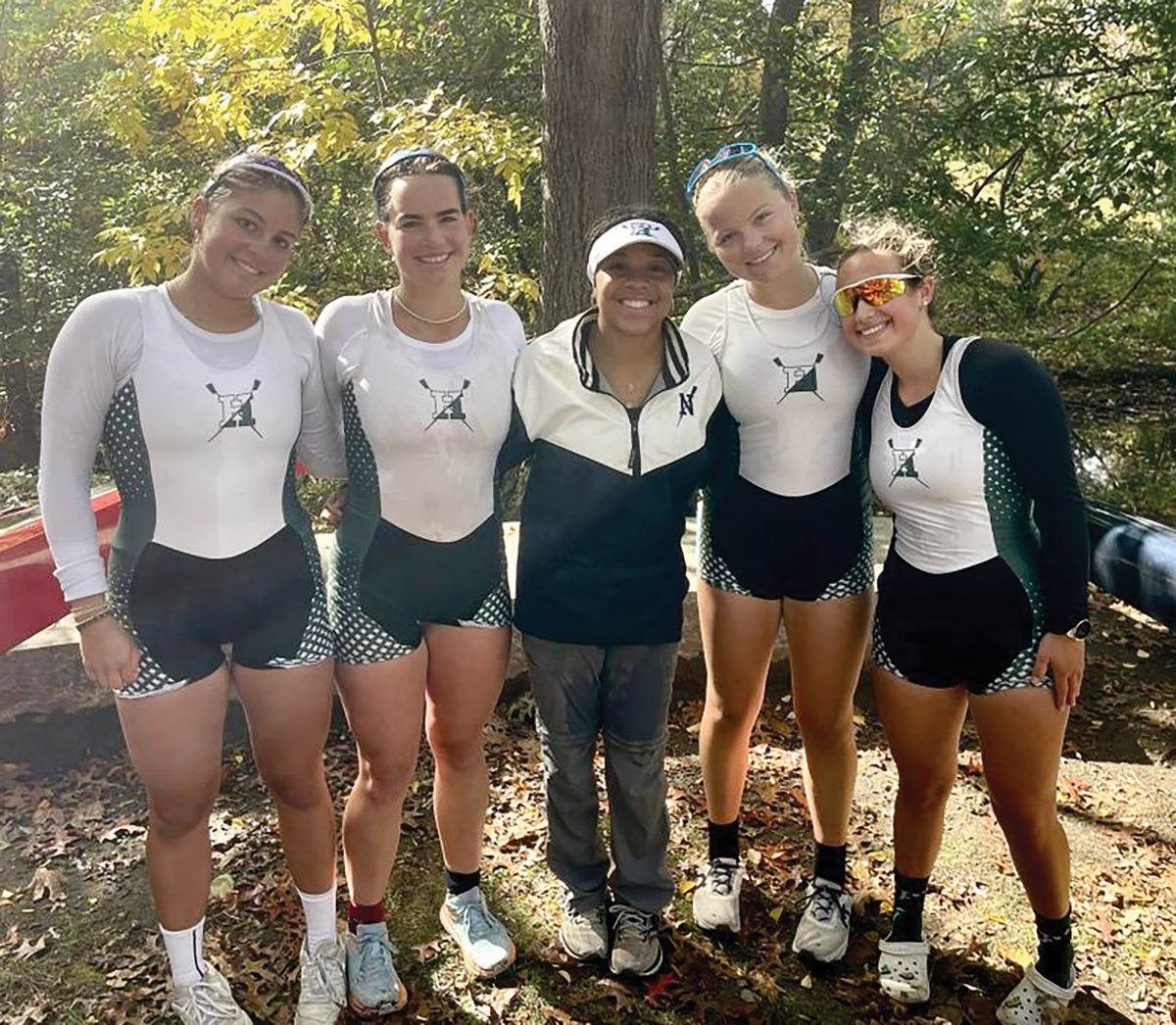PICTURED ABOVE: President and Founder of HEF Recovery Hanna Fobare started her business this past March to help those struggling with addiction.// Photo by Hanna Fobare.
For Hanna Fobare ’10, strolling through the grocery store on a Friday afternoon can prove to be a complicated process. With watchful eyes and a careful demeanor, she walks side by side with her client through the aisles to make sure they are never left unattended. Hanna accompanies clients to run these kind of errands on a regular basis because she is a substance abuse recovery coach. Her path to this career was not an easy one, however, and began six years ago when her own addiction started.
At Hockaday, Hanna was a star athlete. With raw talent and hard work, she excelled in soccer and was recruited to play for Clemson University. Upon news of her recruitment, Hanna was overjoyed that her arduous routine of a life consumed with soccer had paid off in a big way.
“I went to school, then soccer practice, came home and did it all again the next day. I was a creature of habit, and soccer was my identity,” Fobare said.
Upon arriving at Clemson, Hanna did not expect this structured schedule to change. She was dismayed to find out, however, that her soccer experience in college did not offer the same dynamic as the one back home.
“In Dallas, I was used to being the best. I wasn’t a star, but I was really good and I worked hard to get there. In college, I didn’t have the same relationship with my coach. I was upset with my playing time and I wanted out,” Fobare said.
In an impulsive decision made without her family’s consent, Hanna left the soccer team after a year. Suddenly, the sport that had transformed into her identity was gone, and the young college sophomore felt like she had a lot to figure out.
“I didn’t know what to do with myself for the next couple of years. I lost my structure, so I joined a sorority and started partying,” Hanna said.
Prior to Clemson, Hanna had never touched a drug in her life, but with college parties offering open access to an abundance of alcohol and marijuana, she assumed using and drinking would be a harmless pastime.
At first, this way of life gave her purpose; it was a fun and refreshing contradiction to not only her packed schedule in the past, but also a toxic relationship she was in at the time. As her consumption increased, however, her personality began to change in a negative way.
“As everything progressed, I was self medicating [with prescription drugs],” Hanna said. “I was avoiding all human contact and barely eating. I practiced absolutely no self-care. I just wanted to feel numb and escape from reality, and pills did just that.”
During the early stages of her addiction, Hanna found it easy to put on a show for her parents and two sisters; she only returned to Dallas during breaks and blamed her schedule for lack of communication during the school year. In hindsight, Hanna’s younger sister Maggie Fobare ’12 recognizes how they drifted apart in a concerning way.
“My relationship with my parents strengthened when I got to college and I think they weren’t getting that from Hanna,” Maggie said. “Maybe subconsciously, we didn’t really realize that this was happening; it was an indicator which, unfortunately, we didn’t pick up on”
Just months before her college graduation, Hanna’s substance abuse coupled with depression lead to her becoming suicidal. Her parents intervened and brought her home to be checked into Enterhealth, a dual-diagnosis treatment center which cares for both mental health and addiction based illnesses simultaneously. Despite uncovering crucial behavioral issues at the treatment center and moving into Patton House, a sober house for recovering addicts, Hanna quickly relapsed and started drinking again. Maggie, thinking her sister was finally committed to recovering, recalls this experience as an emotional rollercoaster for her and her parents, who took immediate action upon news of Hanna’s relapse.
“I called my dad thinking they would help me clean up the mess, but they said, ‘we are done,’ so they took all my stuff, my car, my credit card, and for the first time in my life I had absolutely nothing,” Hanna said. “I cannot imagine how hard it was for them, but they cut all ties with me. That saved my life.”
Hanna moved into The Magdalen House, a free non-medical detox center in East Dallas for two weeks and then went to Nexus, a state funded shelter for women seeking recovery, for forty-five days. She made a commitment to sobriety that evidently lasted; her official sobriety date is April 20, 2015. At the time, she considered being in a homeless shelter one of the lowest points of her life, but she looks back on it as a humbling necessity in her journey.
“When I was at the Magdalen House, I was informed that one of my best friends I lived with died from addiction one day after I got to the detox center. This is truly when I hit rock bottom. I had never felt so lonely and empty and knew I couldn’t keep living like this. I want- ed to change. The first time I tried to get sober, I did it for my family, but the second time, I did it for myself,” Hanna said.
This newfound personal commitment pushed Hanna to move into Oxford House, a sober living house. She got a job as an activities director at a nursing home and found she loved to work with people. Taking the bus and eating food bought by her roommates, Hanna got by and eventually moved into her own apartment. She then started considering future career aspirations and accepted an internship at Global Breakthrough Education, a company specializing in recovery coaching.
“My therapist always used to tell me helping others with their recovery will help your own. So, when I heard about this opportunity, I thought, ‘of course, I’ll do it,’ and it just clicked,” Hanna said.
After six months at the company, Hanna wanted to pave her own path in helping others. This past March, Hanna launched her own business, HEF Recovery, with the HEF representing her initials. While she was excited about using her own experience in recovery to help others, Hanna didn’t know much about starting a business, so along with attending bi-weekly meetings with her dad, a commercial real estate investor, she also sought out Fritz Deichert, a recovering addict and her best friend, to be her business partner.
HEF Recovery is a comprehensive recovery coaching service. Hanna starts by meeting with the families of clients to assess needs and evaluate if she is a good fit for coaching. After taking on a client, a contract is made outlining short term and long term goals, how many meetings they will have a week and for how long. The contract also notes what should happen in case of a relapse, and Hanna, learning from her own recovery, wanted to place the power in the hands of the client for this aspect of their journey.
“It is key for our clients set their own attainable goals [in the contracts.] Recovery can be very intimidating so it is important to outline goals that the client believes he or she can accomplish. HEF provides regular and often daily guidance to empower our clients to lead the life they deserve,” Hanna said.
The standard period of time for using a recovery coach is two to three months, but Han- na and Deichert work with clients for as long as they need. As the process goes on, they try to wean the client off of needing to see them by gradually going down from three meetings a week to phone coaching. After that, there isn’t an official goodbye because Hanna wants her clients to find independence while always remembering the support from HEF recovery.
“Selfishly, I would love to work with some of my clients forever. We become very close with [our clients] and their family but it is important to let them go when they are ready,” Hanna said.
With Deichert taking male clients and Hanna taking female clients, the duo is currently helping nine people in the Dallas area. The process starts from the very treatment center that Hanna used during her recovery; Enter- health and other organizations refer recovering addicts upon their discharge to Hanna’s company. Hanna has also found success through simple word of mouth with clients from as far as New York City reaching out to her.
Another surprising group of people that reached out to Hanna not only during the time she was starting her business but also her own journey in addiction were her Hockaday peers. While her Clemson classmates would encourage her partying, her Hockaday friends kept her grounded.
“I completely isolated myself for a while due to embarrassment, but [girls from Hockaday] continued to reach out showing their non-judgmental support,” Hanna said.
Despite her former peers’ support, starting the business meant admitting her own recovery to Dallas society, and it was difficult for Hanna to open up about her journey. In the end, she remembered being uncomfortable with her first counselor who had never been through addiction and realized that former addicts make the best counselors.
“Alcoholism and addiction has a stigma. When people think of alcoholics or addicts they often immediately think of the worst possible situations. Once I became more passionate about my recovery I accepted that this is my story and I can either embrace it or be in self-pity,” Hanna said.
Hanna’s family was also extremely supportive at the time, and Maggie notes that starting this type of business was a courageous move for her older sister.
“The social scene in Dallas is tough, it’s cutthroat. Coming from Hockaday, it takes a lot of guts to get out there and say I had a problem, and here I am now. I’m more proud of her now than I ever have been,” Maggie said.
Although HEF Recovery stands for Hanna Elizabeth Fobare, it also stands for health, education and fitness which is an important feature of the business. Meeting at SoulCycle, a popular spin class, and having athletic back- grounds, both Deichert and Hanna used fitness for their own recovery. They now take their own clients to SoulCycle classes and introduce them to other ways of healthy living. Although they are currently not accepting new clients due to being so busy, in the future, Hanna hopes to expand on the fitness side of her company to reach athletes in particular.
In addition to reflecting on their own addiction, both Hanna and Deichert learn more everyday from working with clients about the recovery process. They use each other and their different experiences as sounding boards for new treatment plans.
“We grow through each other. I’ve learned a lot from her, she’s helped me practice patience and she’s one of the most empathetic people I’ve ever met,” Deichert said.
Hanna rarely gets time to herself, as she is on call 24/7 for potential relapses or needs of a client, but she tries to set aside time to workout and just do some deep breathing. She recognizes that recovery is a lifelong process for her.
“I always have to play the tape all the way through. Yes, it might be nice to have a cocktail but I would lose my company, my family, friends, and most importantly myself” Hanna said.
Whether it’s her own recovery or that of one her clients, Hanna maintains a foundational belief for her company: she wants to set people up for the rest of their life, not just a year of being clean. She recognizes that her true recovery came from within herself and that getting clean is just the first step of the process.
“Sobriety means being absolutely clean from drugs and alcohol, but recovery is a way of life is way more than just not drinking or drugging,” Hanna said.
Although both Maggie and Hanna recognize that Hanna’s addiction was an extremely difficult time, they both see the past as a reason for the present.
“It’s rare that people go through addiction and then come out strong after the fact and give back. I have never in my life seen her so hardworking and dedicated,” Maggie said. “I’m not happy it happened, but I know now she’s doing exactly what she needs to be doing.”
Story by Shreya Gunukula












